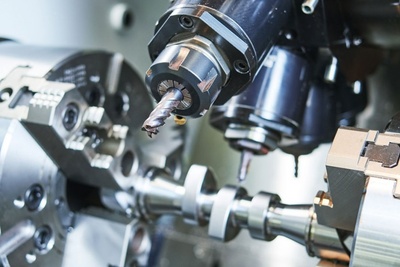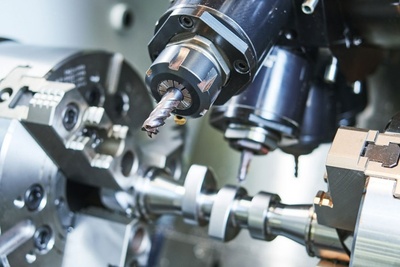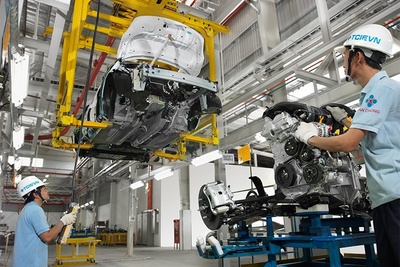4 Ways RPA Is Changing Modern Manufacturing

The systems within these revolutionary operations let companies process orders, manufacture products, and ship to customers faster. Through them, leaders can improve the health of core processes in real time and let customers track orders at each stage of fulfilment. To stay ahead of their small, nimble competitors, manufacturers must embrace cutting-edge technologies like Robotic Process Automation (RPA).
This article explores four ways RPA is transforming the manufacturing industry and look at companies that are seizing on that potential.
1. Automating away service line inefficiency
Keeping service lines efficient is essential for running your business well.
Every inefficient process has the potential to create a domino effect of other inefficiencies, impeding your ability to serve your customers and making it more difficult to implement and deploy new technologies.
A record to report process, for instance, that can’t get information to important stakeholders in a timely fashion might seem like an isolated problem. But if the data that your team is feeding that report requires manual verification to ensure it’s correct, then a slowdown in the latter can lead to compounding delays in the former.
Many companies are pursuing digitisation to help solve these problems. A PwC survey shows that many are already in the process of digitising their supply chains—one-third have already digitised, and three-fourths are expecting to by 2020.
Digital transformation of this sort is a massive challenge, and many organisations are discovering that automation is key to surmounting the problems that come up.
2. Getting products where they need to be, faster
The most effective manufacturing operations focus as much on getting the product a customer’s hands as designing and creating it.
In a globalised economy, however, shipping and distribution are easier said than done.
Tarsus Distribution, a leading IT distributor in South Africa, struggled to keep up with inefficient processes that made shipments a struggle. Before RPA, their shipping process required significant manual data entry—an already slow process pushed to the breaking point by a staffing shortage. RPA proved to be the solution to that problem and the key to achieving digital transformation.
Tarsus Distribution started with a pilot that took on the shipping inefficiency. Working with Xpertek and UiPath, Tarsus deployed a robot that automated the formerly manual data entry that vendor invoices required. Problems quickly appeared, and exceptions overwhelmed them. Undeterred, Tarsus found the problems didn’t originate the robot but how they formatted their invoices.
After resolving that challenge, Tarsus gained the benefits they sought and kept scaling RPA. Tarsus eventually automated data capture and data-entry processes on many of their most significant IT vendor accounts, including HP and Lenovo.
With robots at their side, they were able to ensure complete data accuracy while processing shipments faster than ever.








